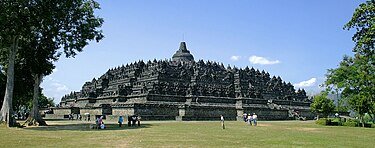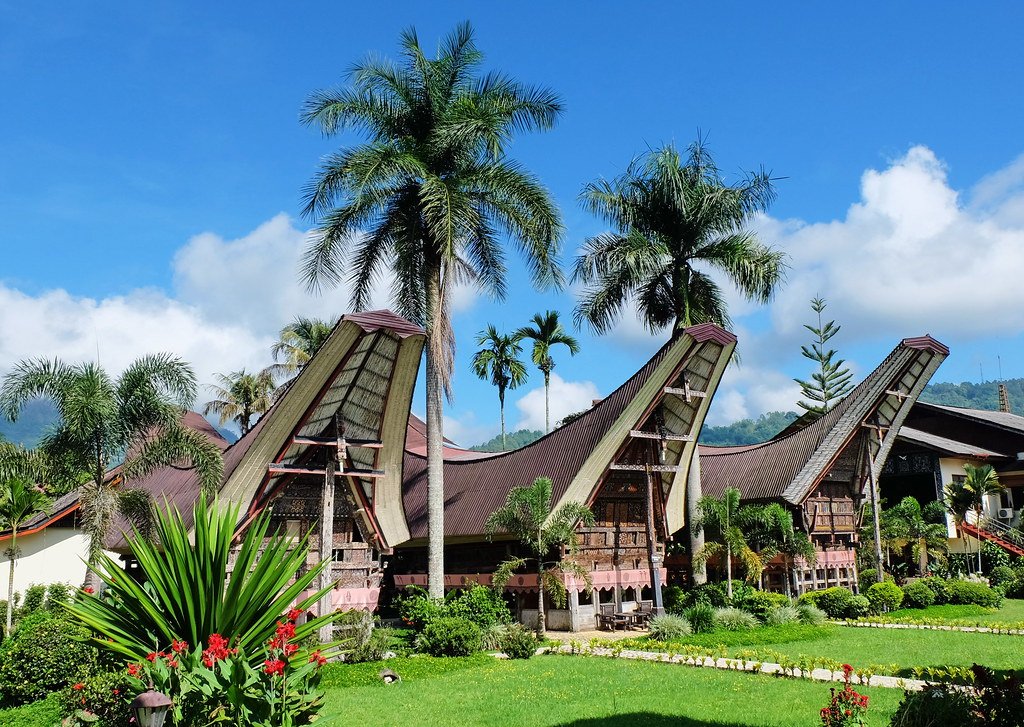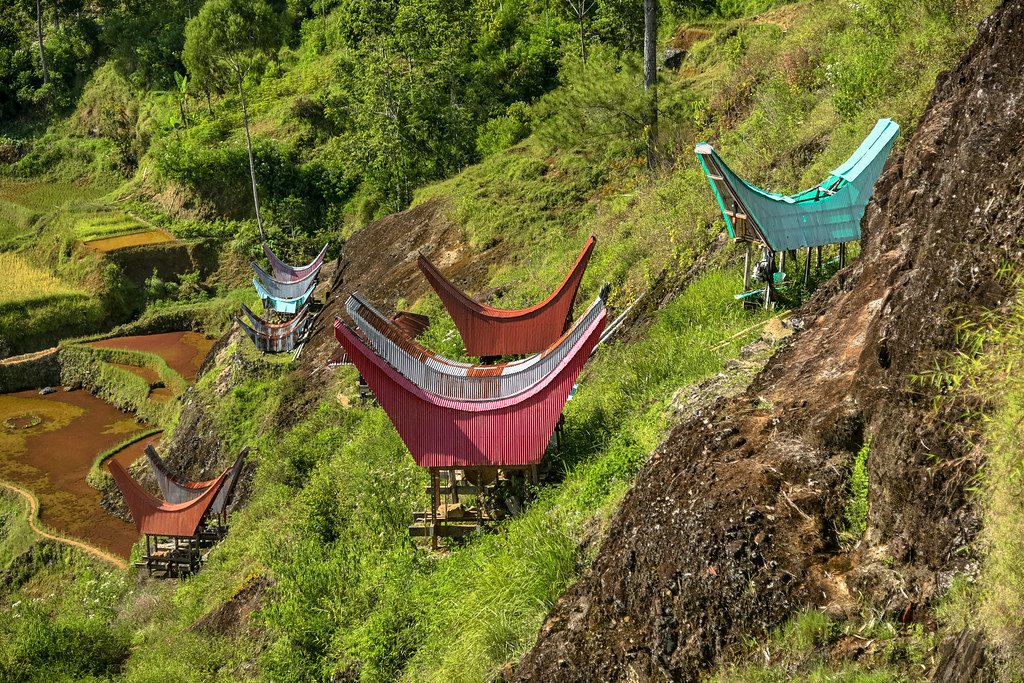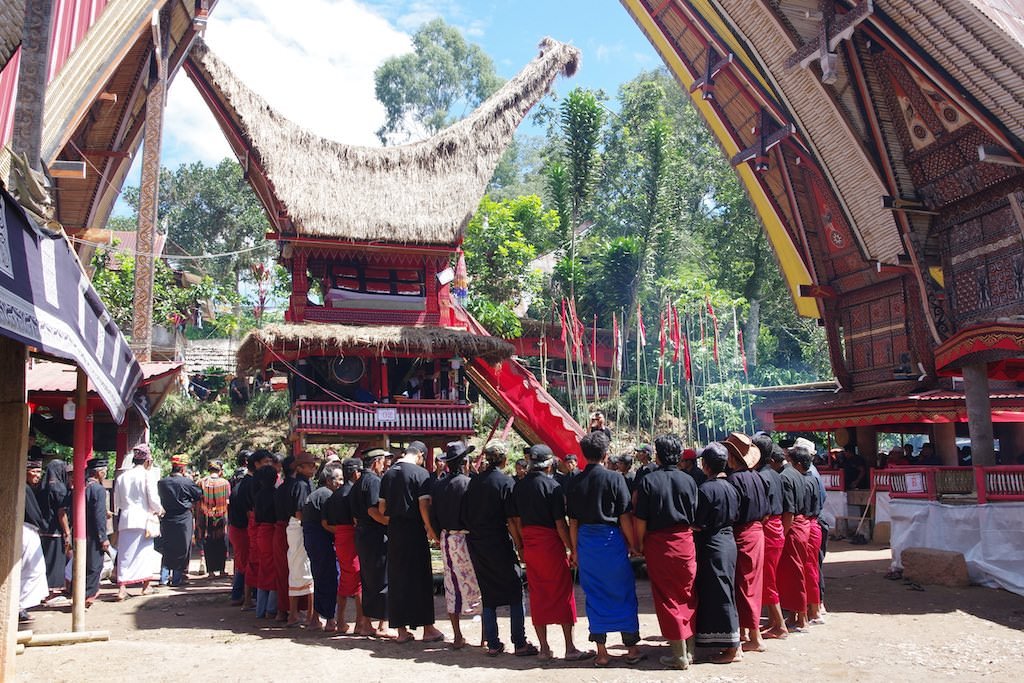Physical Address
304 North Cardinal St.
Dorchester Center, MA 02124
Physical Address
304 North Cardinal St.
Dorchester Center, MA 02124

Your Ultimate Guide to Indonesia Travel Tourism

Hidden Gems and Cultural Treasures – Indonesia
Meta Description: Discover Indonesia‘s hidden gems and cultural treasures with our comprehensive travel guide. Find budget-friendly tips, authentic experiences, and undiscovered paradises perfect for family vacations and solo adventures in 2025.
• Unveiling Indonesia’s Secret Paradise • Cultural Treasures Beyond Bali • Budget-Friendly Travel Planning • Transportation and Getting Around • Accommodation Options for Every Budget • Family-Friendly Hidden Destinations • Authentic Culinary Adventures • Cultural Etiquette and Local Customs • Visa Requirements and Travel Essentials • Best Times to Visit • Safety Tips and Health Guidelines • Frequently Asked Questions
Ever wondered what lies beyond the postcard-perfect beaches of Bali? Indonesia harbors countless undiscovered treasures that whisper tales of ancient civilizations, mystical traditions, and breathtaking landscapes that remain largely untouched by mass tourism. As someone who has spent years exploring these locally favored spots, I can tell you that the real magic happens when you venture off the beaten path.
Picture yourself standing before the dramatic boat-shaped roofs of Tana Toraja’s traditional houses, or floating in the crystal-clear waters of Raja Ampat where vibrant coral gardens stretch endlessly beneath your feet. These aren’t just destinations; they’re hidden paradises waiting to transform your understanding of what true Indonesian adventure means.
The archipelago’s 17,000 islands hold secrets that even seasoned travelers haven’t discovered. From the mystical funeral ceremonies of Sulawesi to the ancient villages of Flores, Indonesia offers family vacation ideas that create lifelong memories without breaking the bank. Whether you’re seeking unfamiliar places for solo exploration or planning group adventures, this guide will unveil the country’s most captivating undiscovered gems.
Nestled in the highlands of South Sulawesi, Tana Toraja represents one of Indonesia’s most fascinating cultural experiences. The Torajan people have preserved their unique traditions for centuries, creating a living museum where ancient customs thrive alongside modern life.
The iconic tongkonan houses, with their distinctive boat-shaped roofs, tell stories of ancestral wisdom and community bonds. These architectural marvels aren’t just buildings; they’re sacred spaces where families gather for important ceremonies and celebrations. The intricate carvings adorning each structure speak of beliefs that connect the living with their ancestors in ways that western minds often struggle to comprehend.

The famous Tongkonan houses, with their distinctive boat-shaped roofs
What makes Tana Toraja truly extraordinary is their approach to death and celebration. The elaborate funeral ceremonies, known as Rambu Solo, can last for days and involve entire communities. Imagine witnessing hundreds of people coming together to honor a loved one’s journey to the afterlife, complete with traditional music, ceremonial dancing, and the sharing of stories that keep memories alive for generations.

Thousands of people gather to honor their loved ones’ journey to the afterlife.
Budget Travel Tip: Local homestays in Tana Toraja cost between $15-25 per night, offering authentic cultural immersion while supporting local families. The experience includes traditional meals and often invitations to participate in daily activities.
Hidden in the mountains of Flores, Wae Rebo Village offers visitors a chance to step back centuries and experience authentic cultural treasures that exist nowhere else on Earth. The journey to reach this hidden paradise requires a two-hour trek through lush forests, but the reward is beyond description.

Wai Rebo Village in the Flores Mountains
The village consists of just seven cone-shaped houses called mbaru niang, each representing a different clan within the community. These structures, built entirely from local materials without using a single nail, demonstrate architectural ingenuity that has withstood the test of time. The thatched roofs, reaching skyward like ancient temples, create a skyline that seems almost magical against the backdrop of rolling hills.
Living with the Manggarai people of Wae Rebo provides insights into sustainable living practices that modern societies are only beginning to appreciate. Their daily routines, from morning coffee ceremonies to evening storytelling sessions, reflect a harmony with nature that feels both ancient and urgently relevant to our contemporary world.
Family Travel Note: Children are especially welcomed in Wae Rebo, and many families find that their kids form deep connections with local children despite language barriers. The shared experience of simple games and cultural exchanges often becomes the highlight of family trips.
When marine biologists speak of paradise, they’re often referring to Raja Ampat. This remote archipelago off the coast of West Papua holds the title of the world’s richest marine biodiversity hotspot, hosting over 75% of all known coral species and 1,500 species of fish in an area smaller than Switzerland.
The name “Raja Ampat” means “Four Kings,” referring to the four main islands that form the heart of this undiscovered gem. Each diving or snorkeling session here reveals underwater landscapes that seem almost alien in their beauty. Manta rays glide through the waters like underwater angels, while schools of barracuda create living tornadoes that mesmerize even experienced divers.
What strikes most visitors isn’t just the abundance of marine life, but the pristine condition of the reefs. Unlike many other diving destinations that show signs of coral bleaching and environmental stress, Raja Ampat’s waters remain largely untouched, offering glimpses of what Earth’s oceans looked like before human impact.
Transportation and Costs: Reaching Raja Ampat requires flights to Sorong, followed by a ferry ride. Budget travelers can find accommodation on Arborek Island for $20-30 per night, while mid-range options range from $50-80. Local boats for island hopping cost approximately $40-60 per day for groups.
While millions of tourists flock to Bali’s beaches and temples, few discover Sekumpul Waterfall, arguably the island’s most spectacular natural wonder. Hidden in the northern highlands, this seven-tiered cascade creates a natural amphitheater where the sounds of falling water echo off jungle-covered cliffs.
The journey to Sekumpul involves a moderately challenging hike through traditional villages and spice gardens, offering opportunities to interact with local farmers and learn about Balinese agriculture. The path winds through landscapes that showcase Bali’s incredible diversity, from rice terraces to tropical forests filled with exotic birds and butterflies.
Standing before Sekumpul’s main falls, where seven streams converge into a thunderous cascade, visitors often describe feeling humbled by nature’s raw power. The mist from the falls creates natural air conditioning, while the emerald pools below invite brave souls for refreshing swims.
Insider Tip: Visit during the early morning hours (7-9 AM) to avoid crowds and capture the best lighting for photography. Local guides charge around $15-20 for the full experience, including historical context and safety guidance.
Indonesia remains one of Asia’s most budget-friendly destinations, but smart planning can stretch your money even further while enhancing your cultural experiences. The key lies in understanding local pricing structures and making choices that support community-based tourism.
Daily Budget Breakdown for Different Travel Styles:
Backpacker Budget ($25-35 per day):
Mid-Range Comfort ($40-70 per day):
Family Budget ($80-120 per day for family of four):
The most rewarding travel experiences often come from the most budget-friendly choices. Staying in local homestays, for instance, not only saves money but provides authentic cultural immersion that five-star hotels simply cannot offer.
Accommodation Savings:
Transportation Hacks:
Food Adventures on a Budget:
Need reliable airport transfers? Book A Transfer through travelgoeasy.net ensures comfortable, affordable transportation from Indonesian airports to your chosen accommodation, eliminating the stress of navigating unfamiliar transportation systems upon arrival.
Indonesia’s vast archipelago presents unique transportation challenges and opportunities. Understanding the various options helps travelers make informed decisions based on budget, time constraints, and adventure preferences.
Domestic Flights: Major carriers like Garuda Indonesia, Lion Air, and AirAsia connect primary destinations with reliable service. Budget airlines offer significant savings but may have weight restrictions and limited flexibility. Book flights at least 2-3 weeks in advance for better rates, especially during peak season (July-August and December-January).
Ferry Services: PELNI (national ferry service) operates large passenger ferries connecting major islands. While economical, these journeys can take 12-24 hours and offer various cabin classes. The experience itself becomes part of the adventure, with opportunities to meet local travelers and enjoy onboard dining.
Traditional Boats: For reaching remote destinations like Raja Ampat or traditional villages, local boats (known as speedboats or traditional vessels) provide essential connections. These journeys offer spectacular coastal views and opportunities to understand local maritime culture.
Urban Areas:
Rural Areas:
Transportation Safety Tips:
For seamless travel planning, explore comprehensive Hotels booking options and Flights reservations through travelgoeasy.net, ensuring your Indonesian adventure starts with reliable, well-organized logistics.
Indonesia’s most memorable stays often happen in accommodations that reflect local culture and traditions. These options provide immersive experiences while supporting local communities and preserving traditional lifestyles.
Traditional Homestays: Staying with local families offers unparalleled cultural insights and language practice opportunities. Hosts often include traditional meals, cultural activities, and local area guidance. Prices typically range from $10-20 per night, with meals often included.
Traditional Architecture Hotels: Properties built in traditional styles, such as Joglo houses in Java or Minangkabau structures in Sumatra, combine cultural authenticity with modern comfort. These accommodations often feature traditional arts, local materials, and architectural elements that tell stories of regional heritage.
Eco-Lodges: Sustainable accommodations emphasizing environmental responsibility and community support. Many eco-lodges offer cultural programs, local craft workshops, and guided nature experiences led by community members.
Family-Friendly Guesthouses: Many Indonesian guesthouses cater specifically to families, offering connecting rooms, child-friendly dining options, and local activity recommendations. These properties often provide high-value accommodation at reasonable rates ($25-40 for family rooms).
Apartment Rentals: In major destinations, short-term apartment rentals offer space, kitchen facilities, and local neighborhood experiences. These options work particularly well for families planning longer stays or those with specific dietary requirements.
Resort Alternatives: Consider smaller, locally-owned properties that offer resort-style amenities without international hotel pricing. Many feature swimming pools, organized activities, and family-friendly dining at significantly lower costs than major chains.
Accommodation Booking Strategy:
Indonesian street food represents the heart of local culture, where recipes passed down through generations create flavors that define national identity. Each region offers unique specialties that reflect local ingredients, cultural influences, and historical connections.
Jakarta’s Kuliner Scene: The capital’s streets come alive after sunset with food vendors offering everything from Betawi-style kerak telor (spiced omelette) to Chinese-influenced bakmi (noodles). Kemang and Senayan areas offer safe, tourist-friendly street food experiences with authentic flavors.
Yogyakarta’s Royal Cuisine: The cultural capital showcases royal Javanese cuisine through street vendors and traditional restaurants. Gudeg, a young jackfruit curry served with rice and various accompaniments, represents the city’s signature dish. Local night markets offer complete meals for under $3.
Balinese Markets: Traditional markets like Pasar Badung in Denpasar provide immersive culinary experiences where visitors can sample local fruits, traditional snacks, and regional specialties while interacting with local vendors and learning about ingredients.
Restaurant Safety for International Visitors:
Regional Specialties Worth Trying: Sumatra: Rendang (slow-cooked beef curry), Nasi Padang (rice with various curries) Java: Soto (aromatic soup), Pecel (vegetable salad with peanut sauce) Sulawesi: Coto Makassar (beef soup), Pisang Epe (grilled banana dessert) Bali: Babi Guling (roasted pork), Bebek Betutu (slow-cooked duck)
Cooking Class Experiences: Many cultural experiences include hands-on cooking classes where families learn to prepare traditional dishes using local ingredients and techniques. These activities often include market visits, ingredient selection, and cultural context about food’s role in Indonesian society.
Dietary Considerations: Indonesia accommodates various dietary requirements, with many traditional dishes naturally vegetarian. Buddhist and Hindu influences, particularly in Java and Bali, ensure abundant plant,based options. Always communicate specific dietary needs clearly, and consider learning key phrases in Bahasa Indonesia.
Indonesian society emphasizes respect, harmony, and community above individual expression. Understanding these values enhances travel experiences and demonstrates cultural sensitivity that locals deeply appreciate.
Religious Considerations: Indonesia’s Muslim majority influences daily life, social interactions, and business practices. During Ramadan, respect fasting periods by avoiding public eating and drinking during daylight hours. Dress modestly when visiting religious sites, and remove shoes before entering mosques or temples.
Social Interactions:
Photography Etiquette: Always ask permission before photographing people, especially in traditional dress or during religious ceremonies. Many cultural sites have specific photography rules, and some locations require small fees for camera use. Respect these guidelines as they often support site maintenance and community income.
Temple and Religious Site Attire:
Daily Wear Recommendations: Indonesia’s tropical climate favors light, breathable fabrics, but cultural norms emphasize modesty. Avoid revealing clothing, especially in rural areas or conservative regions. Local markets offer inexpensive, culturally appropriate clothing that’s perfect for tropical weather.
Beach and Water Activity Attire: While beach areas are more relaxed, topless sunbathing is inappropriate. Swimwear should be reasonable and respectful. Many Muslim women wear modest swimwear, and various styles are available in local shops.
Understanding cultural expectations enhances interactions with local communities and demonstrates respect for Indonesian values. These considerations become particularly important when visiting historical wonders and participating in cultural experiences that form the backbone of authentic Indonesian travel.
Indonesia’s visa policies accommodate various travel purposes and durations, making it accessible for most international visitors. Understanding current requirements ensures smooth entry and avoids complications at immigration checkpoints.
Visa-Free Entry: Citizens from over 160 countries can enter Indonesia visa-free for tourism purposes up to 30 days. This policy covers most European countries, North America, Australia, and many Asian nations. The stay cannot be extended, and visitors must have onward travel tickets.
Visa on Arrival (VoA): For longer stays or countries not covered by visa-free policies, Visa on Arrival provides 30-day entry with one possible 30-day extension. The cost is approximately $35 USD, payable in cash or by card at major airports. Online e-VoA applications are available for certain airports, saving processing time.
Tourist Visa Requirements:
Vaccination Recommendations: While no vaccinations are mandatory for most travelers, several are recommended based on planned activities and destinations. Hepatitis A and B, typhoid, and Japanese encephalitis vaccines provide protection against common travel-related illnesses. Malaria prophylaxis may be recommended for certain rural areas.
Travel Insurance Considerations: Comprehensive travel insurance should cover medical emergencies, evacuation, and activity-related injuries. Many nature & wildlife activities and adventure sports require specialized coverage. Indonesia’s remote locations may require helicopter evacuation, making comprehensive coverage essential.
Health Precautions:
Travel Safety Tips:
For comprehensive travel planning assistance, visit Planning Travel Trips resources that provide detailed guidance for Indonesian adventures.
Indonesia’s tropical climate creates distinct wet and dry seasons that significantly impact travel experiences. Understanding these patterns helps optimize itineraries and ensures the best possible conditions for planned activities.
Dry Season (April-October): The dry season offers ideal conditions for most tourist activities, with minimal rainfall, lower humidity, and excellent visibility for diving and snorkeling. This period coincides with peak tourist season, resulting in higher accommodation rates and more crowded attractions.
Wet Season (November-March): The wet season brings afternoon rains, higher humidity, and occasional tropical storms. However, this period offers significant advantages: lower accommodation rates, fewer crowds, lush landscapes, and excellent conditions for photographing waterfalls and rice terraces.
Regional Variations:
Ramadan and Eid Celebrations: Islamic holidays significantly impact travel experiences, with reduced daytime dining options during Ramadan but incredible evening festivities. Eid celebrations offer unique cultural experiences but may affect transportation and accommodation availability.
Regional Festivals:
Planning Around Local Events: Major festivals create incredible cultural opportunities but require advance planning. Accommodation fills quickly, transportation becomes limited, and prices increase significantly. However, the cultural immersion and photographic opportunities often justify the additional planning and expense.
Consider timing visits to coincide with specific interests: honeymoon getaways during shoulder seasons offer better weather and fewer crowds, while family vacation ideas might benefit from school holiday periods despite increased costs.
Indonesia’s hidden gems offer exceptional opportunities for family vacation ideas that combine adventure, cultural learning, and natural beauty. These destinations provide engaging experiences for children while offering adults meaningful cultural immersion and relaxation.
Belitung Island: A Family Paradise
This lesser-known island east of Sumatra offers pristine beaches, unique granite rock formations, and family-friendly activities that create lasting memories. The calm, clear waters provide safe swimming conditions for children, while the dramatic coastline offers excellent photography opportunities.
The island’s relaxed atmosphere allows families to experience authentic Indonesian culture without the overwhelming crowds of more popular destinations. Local fishing villages welcome visitors, offering opportunities for children to learn about traditional boat building and fishing techniques.
Family Activities:
Accommodation Options: Family-friendly resorts and guesthouses offer connecting rooms, children’s activities, and local cuisine adapted for international tastes. Many properties provide cultural programs specifically designed for families, including traditional craft workshops and storytelling sessions.
Borobudur and Surrounding Villages: While Borobudur Temple attracts millions of visitors, the surrounding villages offer authentic cultural experiences perfect for family learning. Children can participate in traditional craft workshops, learn about rice cultivation, and experience rural Indonesian life.
Village Homestay Programs: Carefully selected homestay programs accommodate families while providing immersive cultural experiences. Children often form quick friendships with local families, creating natural language exchange opportunities and cultural understanding.
Nature Education: Indonesia’s biodiversity provides incredible learning opportunities. Nature & wildlife experiences, from observing orangutans in Borneo to discovering marine life in Raja Ampat, create educational adventures that inspire environmental awareness and conservation consciousness.
For comprehensive family travel planning, explore Family Trip Planning resources that address specific needs of traveling families, including safety considerations, activity recommendations, and cultural preparation.
Indonesia’s remote destinations require additional safety awareness and preparation. Understanding potential risks and implementing appropriate precautions ensures safe, enjoyable travel experiences for individuals and families.
Remote Area Safety:
Water Safety: Indonesia’s extensive coastline and numerous rivers provide incredible recreational opportunities but require constant vigilance. Ocean conditions can change rapidly, and some areas have strong currents unsuitable for swimming.
Activity-Specific Precautions:
Medical Facility Access: Remote destinations may have limited medical facilities, making comprehensive travel insurance and basic first aid knowledge essential. Research nearest hospitals and clinics for planned destinations, and consider evacuation insurance for extremely remote areas.
Common Health Concerns:
Prescription Medications: Carry sufficient supplies of required medications, along with copies of prescriptions and medical documentation. Some medications may be restricted or unavailable in Indonesia, requiring advance planning and customs documentation.
Emergency Preparedness:
Understanding these considerations enhances safety while exploring Indonesia’s undiscovered treasures and unfamiliar places that provide the most rewarding travel experiences.
Indonesia’s hidden paradises rely on sustainable tourism practices that preserve cultural heritage, protect natural environments, and support local communities. Travelers can make positive impacts through conscious choices and respectful behavior.
Community-Based Tourism: Choose accommodations, guides, and activities operated by local communities. These businesses provide authentic experiences while ensuring tourism revenue directly benefits local families and cultural preservation efforts.
Environmental Conservation:
Cultural Preservation: Participate in cultural activities that support traditional arts, crafts, and practices. Purchase authentic handicrafts directly from artisans, attend traditional performances, and learn about local customs and traditions.
Conscious Spending: Direct spending toward local businesses creates economic opportunities for communities while providing travelers with authentic experiences. Choose locally-owned restaurants, accommodation, and activity providers over international chains when possible.
Skill Sharing: Many travelers contribute to local communities by sharing skills, teaching languages, or participating in community development projects. These exchanges create meaningful connections while providing valuable resources to local communities.
Fair Tourism Practices:
For travelers seeking authentic experiences that support local communities, explore Hidden Gems and Popular Destinations that emphasize sustainable tourism practices and community engagement.
What is the best time to visit Indonesia’s hidden gems? The dry season (April-October) offers ideal weather conditions for most activities, but the wet season (November-March) provides fewer crowds, lower prices, and lush landscapes. Timing depends on specific destinations and planned activities.
How much should I budget for a two-week trip to Indonesia? Budget travelers can expect to spend $25-35 per day, mid-range travelers $40-70 per day, and families approximately $80-120 per day for a family of four. Costs vary significantly based on destinations, accommodation choices, and activity preferences.
Do I need special vaccinations for Indonesia? No vaccinations are mandatory for most travelers, but Hepatitis A and B, typhoid, and Japanese encephalitis are recommended. Malaria prophylaxis may be suggested for certain rural areas. Consult with travel medicine specialists for personalized recommendations.
Is Indonesia safe for solo female travelers? Indonesia is generally safe for solo female travelers who exercise normal precautions. Dress modestly, especially in conservative areas, avoid isolated locations after dark, and choose reputable accommodation and transportation options.
What languages are spoken in Indonesia? Bahasa Indonesia is the official language, but over 700 regional languages exist. English is widely spoken in tourist areas, but learning basic Indonesian phrases enhances cultural interactions and demonstrates respect for local culture.
How do I get to remote destinations like Raja Ampat or Tana Toraja? Remote destinations typically require domestic flights to regional airports followed by ground or water transportation. Plan extra time for connections and consider weather-related delays. Local tour operators can arrange complete transportation packages.
Can I use credit cards throughout Indonesia? Credit cards are accepted in major tourist areas and cities, but cash remains essential for rural areas, street food, and small businesses. ATMs are widely available in urban areas but may be limited in remote destinations.
What should I pack for Indonesia’s tropical climate? Pack lightweight, breathable clothing that covers shoulders and knees for cultural sites. Include rain gear for wet season travel, reef-safe sunscreen, insect repellent, and comfortable walking shoes. Bring a universal adapter for electronics.
Indonesia’s hidden gems and cultural treasures offer transformative travel experiences that extend far beyond typical tourist destinations. From the mystical highlands of Tana Toraja to the pristine waters of Raja Ampat, these undiscovered paradises provide opportunities for authentic cultural immersion, natural wonder, and personal growth.
The archipelago’s incredible diversity ensures that every traveler discovers something unique and meaningful. Whether you’re seeking family vacation ideas that create lasting memories, locally favored spots that offer authentic cultural experiences, or unfamiliar places that challenge and inspire, Indonesia delivers adventures that exceed expectations.
Remember that the most rewarding travel experiences often come from stepping outside comfort zones and embracing the unknown. Indonesia’s cultural treasures await those willing to venture beyond familiar paths and discover the extraordinary stories that lie hidden throughout this magnificent archipelago.
Ready to begin your Indonesian adventure? Plan your journey with confidence using comprehensive travel resources, book reliable accommodation through trusted platforms, and prepare for experiences that will transform your understanding of Southeast Asian culture and natural beauty.
For complete travel planning assistance, including flights, accommodation, and transportation, visit travelgoeasy.net – your trusted partner for Indonesian adventures.
Start planning your journey to Indonesia’s hidden paradises today, and discover why these undiscovered gems create travel memories that last a lifetime.
Targeted Keywords Used in This Article:
This article is exclusively created and copyrighted by travelgoeasy.net. Unauthorized copying, reproduction, or use of this content is strictly prohibited. All rights reserved.